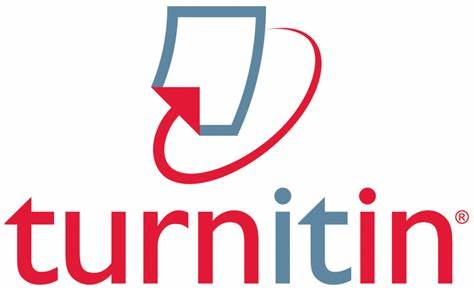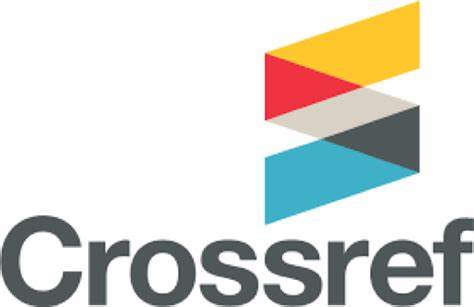Instructions for Authors
About the journal
An international quarterly peer-reviewed academic journal publishes in both Arabic and English on topics related to political science and published by Al-Nahrain University, College of Political Science in Baghdad since 2000. International Standard Numbers for the journal (pISSN: 2404-2790, eISSN: 9250-2070).
Aims and scope
Political Issues aims to be at the forefront of international academic journals on topics related to political science. The journal considers a wide range of topics in political science, including but not limited to:
- Comparative governance
- Comparative political systems
- Comparative public policies
- Diplomacy and international relations
- Elections and representation
- International regulation
- Measurement of opinion
- Participation in governance management
- Peace and democracy
- Political economy
- Political ideas
- Refugees and conflict
- Strategic studies
- Sustainable development
- Technology policy
Type of papers
The journal considers original research papers, review articles, book reviews, and letters to the editor. The editorials are authored either by the editors or upon solicitation by the editor-in-chief.
Prepare a manuscript for publication
There is a set of criteria that must be met in all manuscripts submitted for publication in the Political Issues journal. This journal will not consider manuscripts that:
-
do not contain original arguments or analyses;
-
are not characterized by analytical rigor and are not of high quality and independent;
-
the author does not have approval from the institutional review board for studies involving human participants;
-
consist of undesirable responses to recently published articles;
-
are book reviews or articles on current events;
-
are under review simultaneously elsewhere (i.e. submitted to another place at the same time);
-
contain material already published elsewhere (without proper quotation or licensing);
-
do not comply with the subject, style, and formatting requirements and concealment of identity indicated above; or
-
have been previously reviewed in political issues and were rejected without the author taking into account the reasons for the previous rejection.
Each type of paper considered by the journal has a set of requirements that facilitate the management of evaluation and editing processes. Here are the requirements for each type of paper:
Original research articles: This type should includes a theory or hypothesis based on evidence that is tested through a sound methodology and requires originality and innovation. This type of articles is evaluated by peers (specialists outside the editorial board). Below are the guidelines for writing drafts of this type.
|
Criteria |
|
|
Unspecified |
Title |
|
It should be written in one paragraph of no less than 150 and no more than 250 words. |
Abstract |
|
3 – 5 |
Keywords |
|
Should be written in the IMRAD style (Structured into: Introduction, Methodology, Results, Discussion and Conclusions). |
Text (body) |
|
Should not exceed 10 |
Tables and figures |
|
2,500 – 7,000 (title, abstract, keywords, footnotes, and references are excluded) |
Total word count |
|
Less than 39 |
References |
Review articles: Articles of this type should focus on its topic and its recent advances. It also provides a clear, concise summary of the topic, allowing readers to learn about new developments and/or new concepts, as well as discuss: 1) Diverse perspectives, 2) outstanding areas of disagreement, and 3) potential future advancements in the subject matter of the article. Review articles are subject to an external evaluation process. The following outlines the guidelines for preparing drafts of this type:
|
Criteria |
|
|
Unspecified |
Title |
|
It should be written in one paragraph of no less than 150 and no more than 250 words. |
Abstract |
|
3 – 5 |
Keywords |
|
Should be structured into: Introduction, Text (Headings and subheadings), Discussion and conclusions |
Text (body) |
|
Should not exceed 5 |
Tables and figures |
|
10,000 (title, abstract, keywords, footnotes, and references are excluded) |
Total word count |
|
Should not exceed 80 |
References |
Book reviews: Book reviews are concise publications that summarize and explore one or more books on a specific subject in a well-defined manner, with the requirement that the book(s) be recently published (within the last two years). The aim of any well-written book review should be to guide the reader through the main discussions or arguments of the book with a critical eye, allowing review readers to situate the book within scholarly traditions. Below are the details for drafts of this type:
|
Criteria |
|
|
Should reflect that the publication is a book review |
Title |
|
Not required |
Abstract |
|
3 – 5 |
Keywords |
|
The review should be written in sections that progress from an introduction to presenting the book, followed by critique, and finally, a summary. |
Text (body) |
|
Should not exceed 5 |
Tables and figures |
|
1,000 (title, keywords, footnotes, and references are excluded) |
Total word count |
|
Should not exceed 5 |
References |
Letters to the editor: This type of publication is authored by readers of the Political Issues journal and is subject to review by the editor-in-chief (or a member of the editorial board). It is written to:
-
Comment critically on the content of a research paper published within the previous 3 years;
-
Refute the content of a research paper published within the previous issues with evidence; or
-
Express the author's opinion concisely and based on evidence.
|
Criteria |
|
|
Unspecified |
Title |
|
Not required |
Abstract |
|
3 – 5 |
Keywords |
|
Freely written in one or more paragraphs |
Text (body) |
|
Should not exceed 2 |
Tables and figures |
|
1,500 – 2000 (title, keywords, footnotes, and references are excluded) |
Total word count |
|
Should not exceed 10 |
References |
Editorials: This type of publication is exclusively written by the editors of Political Issues (or experts invited by the editor-in-chief) and is not subject to external evaluation but only to linguistic editing, proofreading, and editor-in-chief reviewing. The purpose is to achieve one of the points below:
-
Present the content of the issue's articles;
-
Draw readers' attention to a contemporary issue or significant event with priority; or
-
Express the author's opinion on a particular issue or subject.
|
Criteria |
|
|
Unspecified |
Title |
|
Not required |
Abstract |
|
3 – 5 |
Keywords |
|
Freely written in one or more paragraphs (with or without headings) |
Text (body) |
|
Should not exceed 2 |
Tables and figures |
|
1,000 – 2000 (title, keywords, footnotes, and references are excluded) |
Total word count |
|
Should not exceed 10 |
References |
Submission of papers
After preparing and organizing the research draft by the researcher, they provide and send the files to the journal. The following are the files requested by the Political Issues journal for consideration of scientific research drafts submitted for publication purposes:
-
Title page: includes the type of research, title, and authors' names, affiliations, and contact details of all authors (and the corresponding author details are mandatory to accept submissions and move to the review process)
-
Blinded manuscript (without author details, for evaluation): includes the research title, abstract, keywords, text, and references. Figures and tables should be placed in their exact places in the manuscript, and cited in the text.
Research manuscripts should be sent exclusively through the electronic submission system at the following link:
https://pissue.iq/index.php/pissue/about/submissions
Manuscript’s processing
After the manuscript is sent by the researcher, via OJS to the journal, it goes through several stages, moving to the next stage if it passes the current one, as follows:
-
Technical evaluation stage by the journal manager: in this stage, the similarity and originality percentages are evaluated (plagiarism check), the sent files are reviewed to ensure their completeness, and ethical disclosures and commitments are checked.
-
General evaluation stage by the editor-in-chief: in this stage, the editor-in-chief reviews the general aspects of the draft and assesses its eligibility, significance, and priority for the journal's readers. At this stage, the editor-in-chief can reject the draft if it is out of the journal's scope without evaluation.
-
Subjective evaluation stage by a member of the editorial board: in this stage, a member of the editorial board evaluates the research in general, diagnoses strengths and weaknesses, focuses on writing a preliminary report that draws the author's attention to how to fix errors and shortcomings (if possible), and sends the research on behalf of the editor-in-chief to external reviewers (usually from within and outside Iraq and at least 2).
-
Peer review stage outside the journal: in this stage, the peer reviewer reviews the draft, comments on it objectively, and recommends the editor regarding the decision.
After acceptance
Once the research draft is accepted, it is sent to the language editor for linguistic revision (Arabic and English). After the linguistic revision is completed (within 7 days), the revised version is sent to:
-
Preliminary publication on the website.
-
The journal's production department for final proofreading and typesetting.
After typesetting the research and completing all production-related procedures, a copy of the research is sent to the author for final review and correction of any necessary revisions, to be returned to the journal within 48 hours. The author's corrections are considered the final corrections to be adopted after acceptance.
Journal’s editorial policies
The journal is committed to the following policies and practices to ensure transparency and best practices in achieving the highest quality and integrity of procedures:
Open access
Political Issues journal is an open access journal, and all published articles can be downloaded for free immediately upon online publication.
Peer review process
The journal is committed to a double-blind review process, where the reviewers and authors are unknown to each other. All contributions are preliminarily evaluated by the editor to ensure their suitability for the journal. Suitable papers are then sent to at least two independent expert reviewers to evaluate the scientific quality of the paper. The editor is responsible for the final decision regarding acceptance or rejection of articles. The editor's decision is final. Editors do not participate in decisions related to papers they have written themselves or those written by family members, colleagues, or related to products or services they are interested in. All such articles are subject to the journal's standard procedures, with peer review being conducted independently of the concerned editor and their research groups.
Copyright and licensing
All accepted papers will be published under the open access model on the journal's website and can be directly accessed through an electronic link for download, copying, and distribution. Published articles are licensed under the terms of the Creative Commons Attribution 4.0 International (CC BY 4.0) license, which allows unrestricted use, distribution, and reproduction in any medium or format, modification, or building upon the material, including for commercial purposes, provided that the work is attributed to the original author. Authors retain the copyright to their published papers.
Conflict of interest
Authors must disclose, in their manuscripts, any financial or other material conflicts of interest that may have influenced the results presented or their interpretation.
Originality and plagiarism
Plagiarism is a clear violation of scientific ethics. It may also involve copyright infringement and result in legal action. Plagiarism usually includes the following:
-
Copying word for word, near-verbatim copying, or paraphrasing portions of another author's work intentionally without clearly indicating the source or marking the copied portion (e.g., using quotation marks);
-
Copying equations, figures, or tables from another paper without properly citing the source and/or without permission from the original author or copyright holder.
Please note that Turnitin is used to carefully check all submissions to this journal to ensure no plagiarism. Any manuscript showing clear signs of plagiarism will be automatically rejected (without being sent for evaluation). The acceptable similarity index is no more than 20% overall, with no more than 5% similarity with a single reference. If plagiarism is discovered in a paper already published by the journal, it will be retracted according to the retraction policy.
Revenue and resources
Political Issues is a self-funded journal, and is not supported by any external agency or government. The journal's revenues come from publication fees collected from Iraqi researchers (with exemptions for researchers from outside Iraq or those working voluntarily without pay), and it is fully supported by the College of Political Science, Al-Nahrain University. The journal does not accept advertising requests.
Allegation of misconduct
Anyone may report suspected unethical behavior or any type of misconduct to the editors and/or editorial staff at any time by providing the necessary information/evidence to initiate an investigation. During the investigation, the Editor-in-Chief consults with the editorial board regarding decisions related to initiating the investigation. Any evidence is treated as highly confidential and is only made available to those strictly involved in the investigation. The accused is always given the opportunity to respond to any allegations made against them. If, at the end of the investigation, misconduct is found to have occurred, it will be classified as either minor or severe.
Minor Misconduct: Minor misconduct is dealt with directly with the involved parties without involving any other parties, for example:
-
Communicating with authors/reviewers when a minor issue arises involving a misunderstanding or misapplication of academic standards.
-
Warning letter to the author or reviewer regarding minor misconduct.
Serious Misconduct: The Editor-in-Chief, in consultation with the editorial board, and when necessary, conducting further consultations with a small group of experts, decides on the course of action to be taken using the available evidence. Possible outcomes include (which can be used separately or in combination):
-
Publishing an official statement or editorial describing the misconduct.
-
Informing the head of the department or employer of the author (or reviewer) of any misconduct through an official letter.
-
Publicly announcing the retraction of publications from the journal according to the retraction policy.
-
Banning the author's (or reviewer's) submissions and activities for a specific period in the journal.
-
Referring the case to a professional organization or legal authority for further investigation and action.
When dealing with unethical behavior, the editorial team will rely on COPE guidelines and recommendations.
Archiving
Political Issues allows authors to deposit pre-print versions of their accepted research papers in an institutional repository or subject-based non-commercial repositories or publish them on the author's personal website (including social network sites, such as ResearchGate and Academia.edu, etc.) and/or departmental site at any time after publication acceptance. Complete bibliographic information (authors, article title, journal title, volume, issue, pages) for the original publication must be provided, and a link to the digital object identifier (doi) of the article must be included.
In addition to the self-archiving policy, all published content is archived in the IASJ (Iraqi Academic Scientific Journals, the National Digital Archive).
Language
The text should be well-written in either Arabic or English, with either American or British English usage accepted but not a mix of the two. Authors who feel their English manuscripts are weak may need editing to remove potential grammatical or spelling errors and ensure conformity with proper scientific English. We encourage the use of English editing services from accredited publishers.
Please note that the title, author names, abstract, and keywords should be written in both Arabic and English. When references are written in non-English characters, they should be romanized (rewritten using Roman characters).
Retraction and correction
To preserve the integrity of scientific research, the editorial board conducts investigations into concerns raised by authors and/or readers. However, authors are always given the opportunity to respond to all complaints/comments. We may ask reviewers to examine the original data and consult with relevant experts to resolve the investigation and conclude it. The following actions may be taken based on the severity of the issue:
-
Publish a corrigendum
-
Publish an editor's note and/or expression of concern; a second notice may also be published upon completion of the investigation
-
Retract the article
Disclaimer
The journal and its publisher remain indemnified with respect to any legal or criminal claims involving individuals named in the journal as authors, reviewers, or editors. The publisher (Nahrain University) will not be legally responsible for any losses, actions, claims for compensation, costs, or damages arising directly or indirectly from the materials published in the journal, relating to or arising from the use of these materials.
Privacy
The names and email addresses stored on the journal's website will be used exclusively for the purposes specified by the journal and will not be available for any other purposes or to any third parties.





